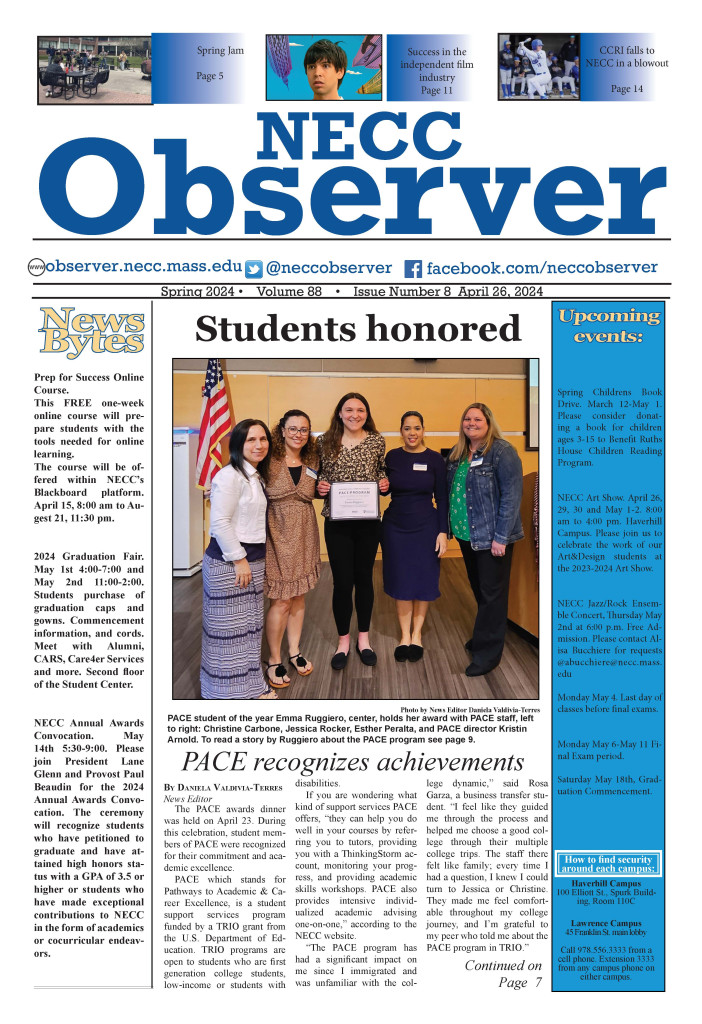By Courtney Hanson, Correspondent
The likelihood of a community college student failing or dropping out of a course is far greater if taken online rather than in a traditional classroom or face to face setting with an instructor.
According to an April 2015 study done by the UC-Davis Community College, students opting to take their classes online rather than in a classroom are 11 percent more likely to either fail or not complete that course. The researchers behind the study noted that their findings closely match those discovered by others in various states throughout the U.S.
This research shows that online courses are not successful for community college students. This is elaborated on in the New York Times editorial, “The Trouble with Online College,” which reflects yet more research found by Columbia University’s Community College Research Center: “The research has shown over and over again that community college students who enroll in online courses are significantly more likely to fail or withdraw … which means that they spent hard earned tuition dollars and get nothing in return.”
The reason for an online course’s lack of success can be numerous and may pertain to either the student, the instructor, the structure and formatting of the class, or a combination of all.
According to the Times editorial, one of the most likely reasons is a lack of engagement. Many students need contact with their professors in order to find the comfort integral to their success, yet cannot find it within online courses.
Instead, “what they get online is estrangement from the instructor who rarely can get to know them directly.”
Because of the absence of personal contact with professors and other students, NECC Liberal Arts major Shirley Rodriguez said taking courses online would likely be much more difficult for her. “I need to be present in the class, surrounded by others, able to interact,” she said.
Shirley has opted away from taking any of her courses online, and plans to remain in the security of the classroom setting.
Jesse Howlette, a second year Liberal Arts major, said that the lack of success in online courses is directly rooted in their structure.
“To me, it has nothing to do with trying harder,” Howlette said. “It’s because of the vague structure and setup of the classes.”
Howlette said that if there were a more definitive and universal outline put in place for online classes they could in fact, be successful.
The Times editorial supports this criticism of online course structure: “The design and production of online community college courses are decentralized and primitive.”
It proceeds to criticize the often basic, instructor-created PowerPoint presentations, which do very little to engage students and present information in a digestible way.
Arianna Stevenson, an NECC graduate and UMass Lowell business major, has had vast experience with online courses at both institutions.
In her experience, the lack of success in an online course can be directly attributed to the student. Stevenson said that students’ perceived lack of accountability, and lack of motivation, causes them to put forth less effort and thus get lesser results.
“When you’re in community college a lot of people don’t have the motivation to move forward and may not be taking their education as seriously as they do at a four-year college,” she said.
This statement is supported by rigorous research — according to the Hechinger Report — which has found that four-year colleges have vastly different completion results for online classes. Unlike community colleges, four-year colleges see absolutely no difference between the success rate of students enrolled in online courses compared to traditional classroom courses.
Regardless of the research, many community colleges will continue to increase the amounts of online courses offered to the students.
As the Hechinger Report put it, “Community college leaders aren’t blind to research evidence. Many know from their own student records that the students aren’t faring well.
But the community college sector is suffering declines, and offering online classes is a huge selling point to prospective students.”

